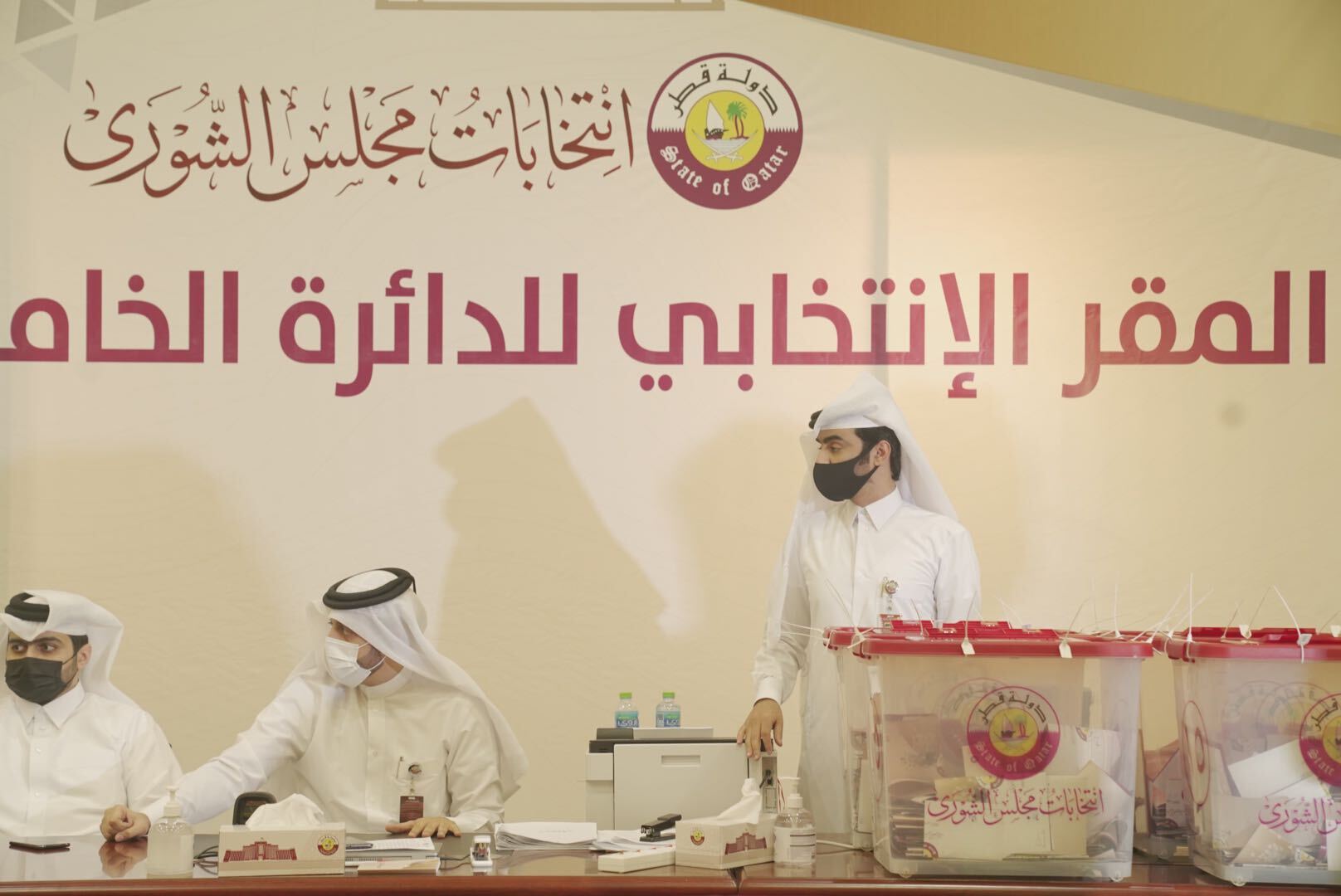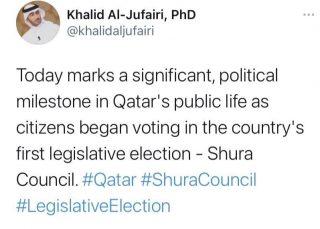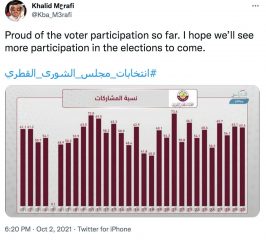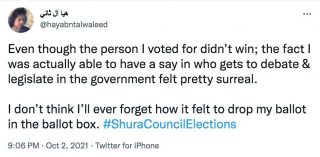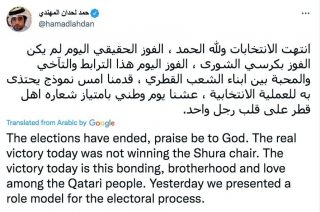Qatar’s first legislative elections saw a 63.5% voter turnout.
Qatar concluded its first ever Shura Council elections on Saturday, marking the launch of a new experience in the country’s legislative history and a new chapter in its domestic and political affairs.
Qatari voters who took part in the “national celebration” took to social media to describe their experience in voting in the new legislative body.
Several former and current Qatari officials, including Foreign Minister Sheikh Mohammed bin Abdulrahman Al Thani, were among those seen casting their vote across polling stations up and down the country on Saturday.
Sheikh Joaan bin Hamad Al-Thani, President of the Qatar Olympic Committee [QOC] and brother of the Amir Sheikh Tamim bin Hamad Al-Thani, described the elections as “another stop in the history of the comprehensive Qatari renaissance”.
“We congratulate in advance those who won the confidence of the Qatari people in these elections, and we wish them success in serving their country,” said Sheikh Joaan.
Twitter user Hamad Al Muhannadi echoed statements made by previous candidates, saying that “the real victory” was not tied to winning a seat in the legislative body, but rather in “bonding, brotherhood and love among the Qatari people”.
“Yesterday we presented a role model for the electoral process,” he said.
Praise also emerged from those whose preferred candidates failed to secure a seat.
The senior vote is too strong…not good news for the young people out there in my humble opinion https://t.co/FIWgtPIBNK
— رَبيعة (@RabeeaComplains) October 2, 2021
Despite hope in the dozens of women who ran for a seat on the legislative body, the final male-dominated list of results proved to be a disappointment for their supporters.
“You’ve lost the battle of victory, but you won the war of participation!” one Twitter user said, addressing the lack of female names on the final list.
Another person on Twitter said that “voting behaviours highlight deeper belief systems in the society” as some also believed that the senior vote was “stronger” than those of the youth.
However, the lack of elected women and youth does not necessarily mean the body will be dominated by elder men.
While Qataris were able to vote in 30 of the 45 seats, Qatar’s amir will be appointing the remaining 15, suggesting women and youth may be among the final list.
Qatar’s decision to hold elections after years of delay has garnered global praise since it was announced last year.
On Saturday, Turkey was one of the first countries to welcome the vote which it hoped would benefit “the brotherly people of Qatar”.
“We appreciate the efforts of the Qatari leadership to hold these elections in a free and transparent environment, which constitutes an important step towards strengthening the participation of the Qatari people in the country’s governance,” Turkey’s Foreign Ministry said in a statement.
Several US officials who met with Qatar’s Assistant Foreign Minister and Spokesperson Lolwah Al Khater also welcomed the Shura Council elections on Saturday.
Despite the outpouring of positivity online, cynical views did emerge, with many taking the moment to shed light on those who were excluded from taking part in the process due to provisions set out in the current electoral law.
“On this day, a large segment of citizens were deprived of the right to vote. If the next council does not change this by providing full citizenship rights to all citizens, then it cannot be depended on,” one Twitter user said.
Kuwait’s Amir Sheikh Nawaf Al-Ahmad Al-Jaber Al-Sabah also congratulated Sheikh Tamim on the Shura Council elections on Sunday and wished the success of the members of the new legislative body.
Meanwhile, Serbian Ambassador Jasminko Pozderac also lauded the country’s elections, saying the high voter turnout was an indicator of “political maturity”.
“It goes without saying that I feel privileged to be able to say few words and give some observations and remarks on the election process and the elections for the Shura Council,” said Pozderac.

